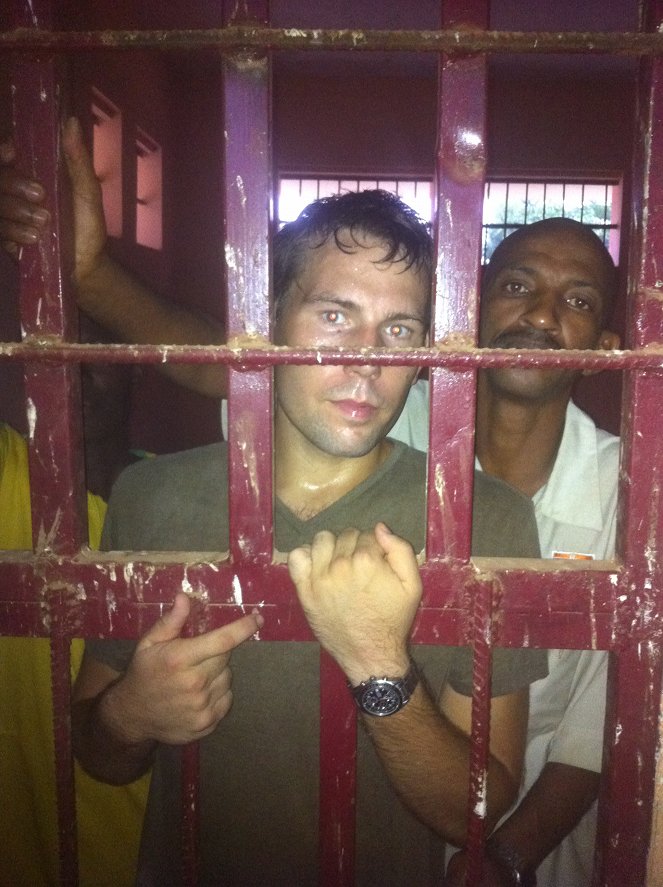Samenvattingen(1)
In March 2011, a young British pilot David Simpson was arrested for mass murder in Africa. The terrifying ordeal that followed was the subject of international headlines for months.
In a documentary exclusive, True Stories tells the story of David Simpson's African mis-adventure. Using exclusive material David shot while in jail and under house arrest, interviews with his family and employers, family archive and dramatic reconstruction, the film pieces together the mystery surrounding the massacre of 13 gold miners, and how a 24-year-old from Yorkshire ended up accused of their murder.
Born and brought up in the idyllic village of Gillamoor, David Simpson didn't want to take over the family pheasant farm. Driven by a desire for adventure and inspired by 19th century explorers Livingstone and Stanley he landed a job with an exclusive safari company on a 200 million hectare wilderness in the Central African Republic (CAR).
Since gaining independence from France in 1960, CAR has endured decades of unrest and armed rebel groups roam the country, but for David, working in one of the world's last remaining wildernesses was a dream come true.
However, as David opened up the bush for big game hunters, relations between the safari company and local population were to became increasingly hostile. Local villagers used the new roads to access rivers deep in the bush and start illegal gold mines. After a number of escalating confrontations between David and the miners, 13 men were found massacred at a goldmine.
News of the murders sparked a violent reaction. One miner claimed he had witnessed David beating the victims to death and following a full scale riot in the nearby village, the accusation that the white safari hunters had killed the miners was being reported on national radio. David and his boss Erik Mararv were arrested and thrown in jail - prime suspects in the case of the murdered miners.
Refusing the opportunity to bribe their way out, David and Erik were held indefinitely while the accusation against them was investigated. David describes the hardship and emotional lows during his time, as he faced terrible jail conditions, rough treatment from the guards and attacks from inmates who were well aware of the charge against them.
Ida Sawyer, a Human Rights Watch researcher and advocate working in the region conducted a report into the massacre and concluded it was most likely to have been carried out by notorious Ugandan rebel group, the Lord's Resistance Army. Still, David and Erik were held captive.
After nearly five months in captivity, David and Erik were placed under house arrest, but continued to be suspects; freedom dangled in front of them and their families. Finally, after five and half months in jail for a crime they always denied committing, they were released without trial.
David Simpson returned to Central African Republic in November 2012, where he continues to work for the safari company. He has set up a garage and is making plans to launch an animal conservation charity. 'I've seen the best and the worst of it,' David says, 'And somehow I still want to go back there. I don't want to be another person who gives up on Central Africa.'
(officiële tekst van distribiteur)
Galerie (2)
Foto © Prima Zoom

Foto © Prima Zoom
